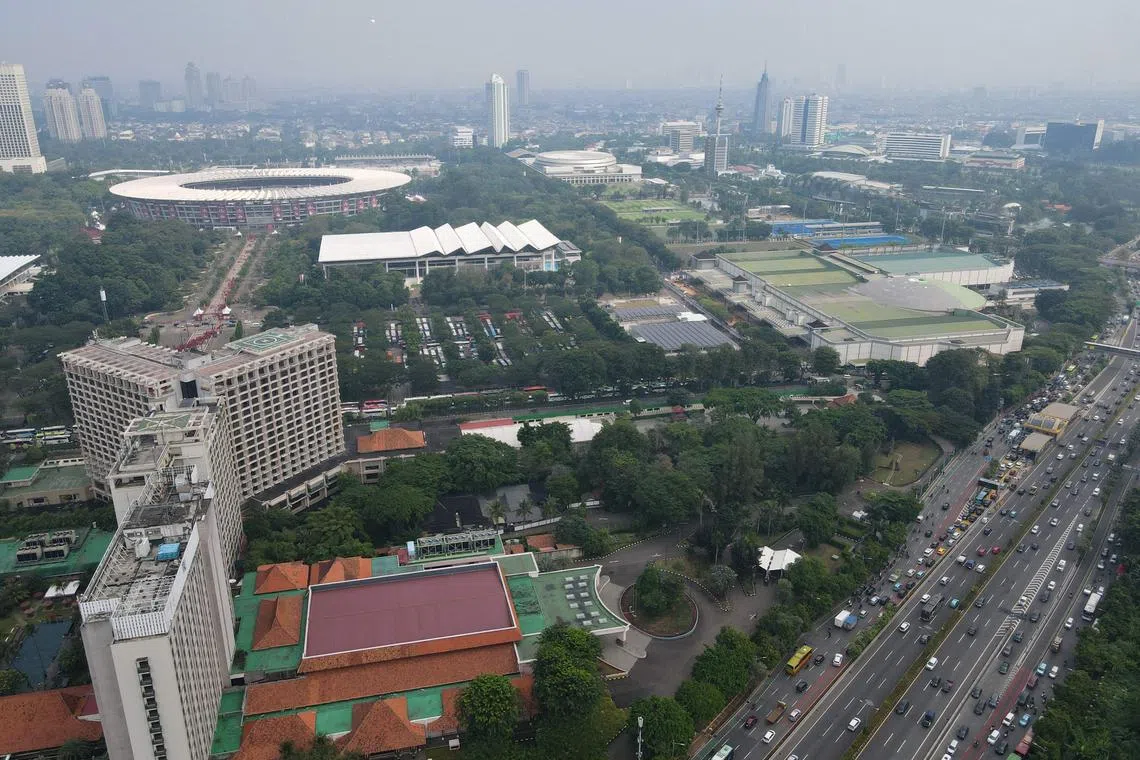Indonesia seeks new deals as ‘shocking’ Trump tariffs roil trade
Sign up now: Get insights on Asia's fast-moving developments

The risk of global trade turmoil is making Indonesia take a measured stance.
PHOTO: AFP
JAKARTA – Indonesia is seeking to diversify its markets as global protectionism intensifies, while also taking steps to defend its local manufacturers, said Deputy Trade Minister Dyah Roro Esti Widya Putri.
“(US President Donald) Trump’s statements on tariffs are quite shocking in a lot of ways, but we think Indonesia could maximise its market potential if the US imposes tariffs on Chinese goods,” Ms Roro said in an interview in Jakarta on Feb 12.
“We are safeguarding our national trade, while expanding exports.”
Mr Trump’s plans for tariffs against countries ranging from Canada to China have stoked fears globally that all exporting nations may face more barriers to the world’s biggest consumer market.
On Feb 12, the European Union trade chief spoke to US officials over their trade disputes, and all of Canada’s premiers were in Washington to lobby against import taxes.
The risk of global trade turmoil is making Indonesia take a measured stance, while it continues to seek more trade deals and tighten protection for local manufacturers from cheap imports being dumped in its market, said Ms Roro, who at 31 is the youngest official in President Prabowo Subianto’s Cabinet.
“We do not want to act too hastily in imposing any kind of import regulation,” she said. “Once the situation becomes clearer, the government will implement policies that are in Indonesia’s best interest.”
South-east Asia’s largest economy has long sought deeper trade ties with the US but, unlike some of its neighbours, it does not have a free trade agreement or a comprehensive economic partnership agreement with Washington.
Instead, it relies on mechanisms like the Trade and Investment Framework Agreement to manage trade relations.
Ms Roro noted that Indonesia is a member of the Brics grouping, and that Mr Trump has threatened to take action against members of the bloc, though there is no indication yet that Indonesia has been targeted.
Indonesian officials will meet the US ambassador next week, she said, without providing further details.
“If such extreme tariffs were imposed, we would diversify our markets, expanding into Asia, Africa and Europe,” she said. “If the situation worsens and we lose the US market, I firmly believe that won’t happen. But if necessary, we will explore other potential markets.”
Beyond the US, Jakarta is actively negotiating new trade agreements to expand its export markets.
“For now, we will be more focused on negotiating comprehensive economic partnership agreements. One example is with Peru, where we are trying to substantially conclude the deal this year,” the deputy minister said.
“We are also in process with Canada and are re-approaching the EU. There were some challenges with the EU, but at the same time, they are starting to open up.”
She said there have been obstacles over climate change-related issues, but that Indonesia is working to finalise its agreement with the bloc.
“One issue is with the EU deforestation law – it is basically a climate sustainability issue,” Ms Roro said. “Indonesia is also keen on India, and that is another country with which our government aims to build bilateral relationships and trade.”
President Prabowo met Indian Prime Minister Narendra Modi during a visit to Delhi in January to boost economic cooperation. Mr Modi is, meanwhile, making efforts to forestall any US trade action against India.
A big concern for Indonesia is its garment industry, where hundreds of thousands of jobs are at risk because of cheap clothing, often imported illegally from China.
At least 80,000 jobs were lost in 2024, according to one estimate, and local companies have been pushing the government to raise non-tariff barriers to protect what is left.
PT Sri Rejeki Isman, the country’s textile giant, furloughed about 3,000 workers after its bankruptcy.
“Our findings in the field indicate that non-compliant imports come from various countries, not just China,” Ms Roro said.
“We are making efforts to mitigate this issue by collaborating across ministries, Customs and even law enforcement agencies, including the police and military.” BLOOMBERG


